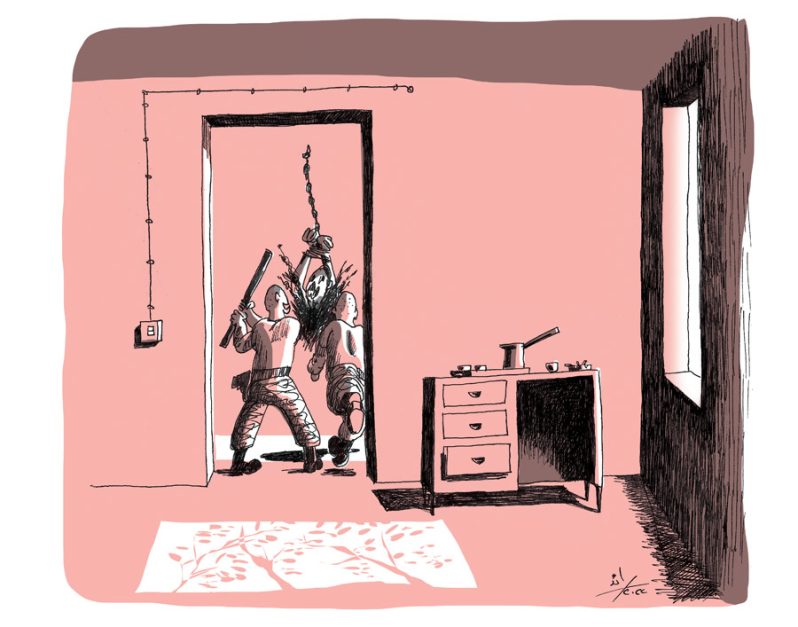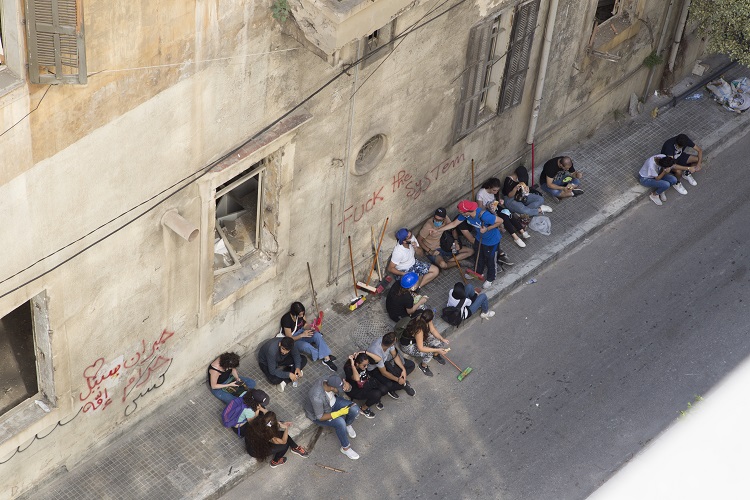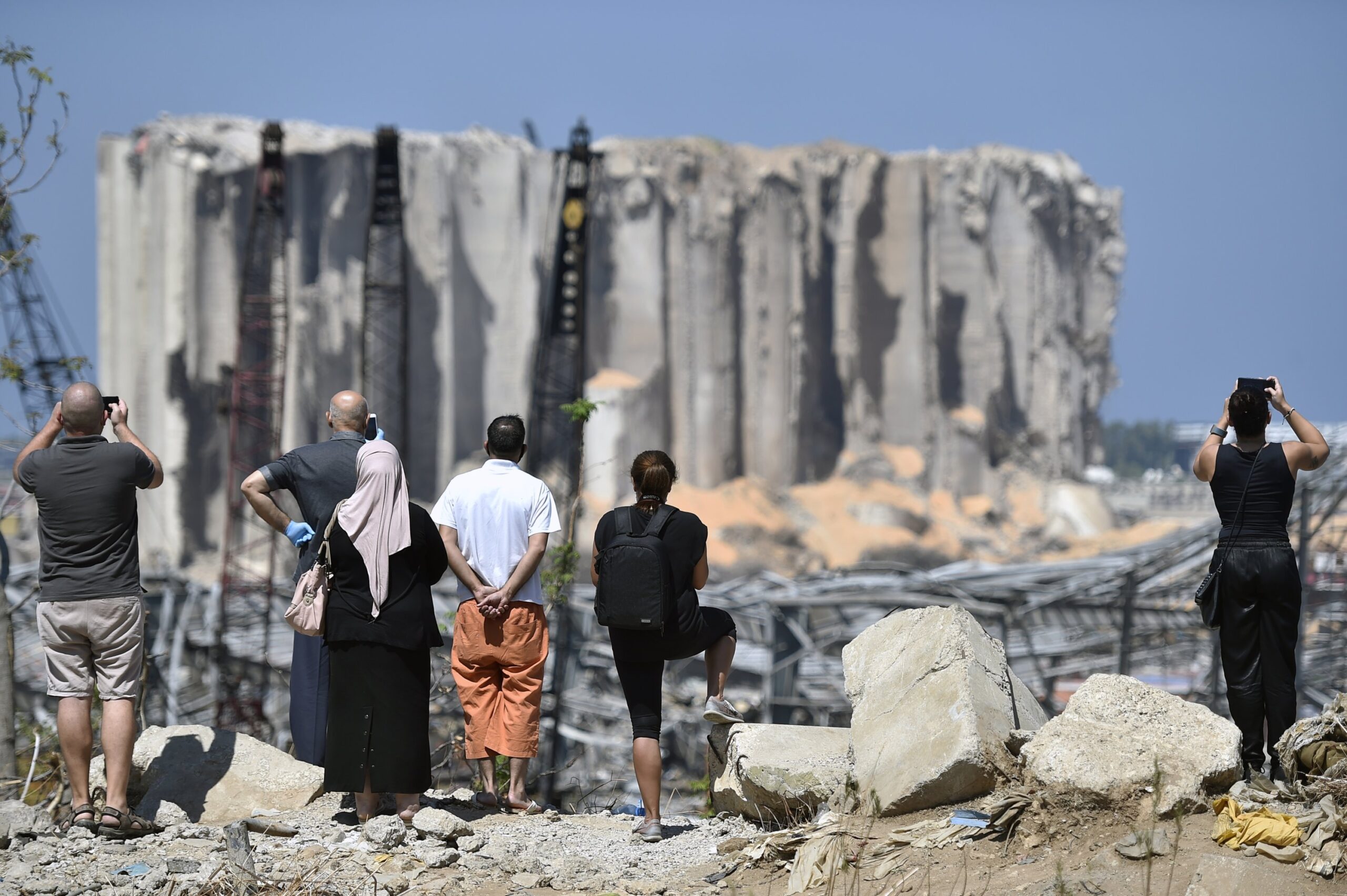The State of Lawmaking in Post-Gaddafi Libya

Under Gaddafi's regime, legislation in Libya was in crisis. This was the conviction of many jurists, though some felt that the term “crisis” was an exaggerated description of the problem. The conviction that there was a crisis was the reason why “The Legislation Crisis in Libya” was the title proposed for the conference held in Tripoli in April 2008. This title was rejected, and instead, the conference was held under the name, “Towards the Development of Legislation in Libya”. However, both titles convey an acknowledgment that there is a problem, albeit in various degrees, as lawyer and then conference participant Mohammad Darrah, who recounted the title incident, says.
The conference defined the aspects of this crisis, as follows:
The absence of a constitution;
Mixing between the development of public policies and the drafting of legislation;
A lack of a clear mechanism for decision-making that can be monitored and reviewed;
The Absence of a constitutional court to lift the burden of monitoring the constitutionality of legislations off the shoulders of the Supreme Court, and to enable the latter to undertake its cassation tasks; and
The inconsistency of legislations, and the lack of commentaries addressing the laws.[1]
A quick glimpse at this list is enough to conclude that legislation was in a real crisis indeed. In fact, the whole regime was in crisis that soon led to its demise. However, the question is: “Has the legislation crisis ended with the end of the Gaddafi regime?” The answer to this question was the subject of a research project conducted by the Centre for the Study of Law and Society at the University of Benghazi, in collaboration with the University of Leiden. The study concluded that the term “crisis” was still a valid description for legislative activity in Libya.
There was an abundance of legislative activity by post-Gaddafi authorities. The National Transitional Council drafted more than 61 laws and issued a repeatedly Amended Constitutional Declaration. Its successor, The General National Congress, enacted 37 laws and continued to make constitutional amendments until after the end of its mandate. The House of Representatives, on the other hand, did not enact as many laws as the two previous bodies, but it did not differ much in terms of the low level of legislations enacted. It should be noted, however, that this judgment is based on the information available on the legislative activity of the House of Representatives, which is scarce. Unlike its predecessors, it does not have a website to inform the public of its activities.
The reasons behind issuing so much legislation varied. In some instances, they were prompted by the assumption that part of the existing pieces of legislation need to be reformed, because they are outdated and are no longer in line with the developments that have taken place, or because they are based on the opinions of Gaddafi. For example, many businessmen expressed their dissatisfaction with old laws of socialist character that are crippling the economy and business, as they put it. The Governor of the Central Bank once stated that the existing legislation is an obstacle to national and foreign investments.[2] Another motive for legislation was the conviction that it is a quick way to achieve important goals, such as institutional development and transitional justice.
Not all of these arguments are convincing, though. The current authorities [seem to have little problem] upholding or drawing on legislation enacted by the Gaddafi regime in the frame of the Islamisation of laws in the early seventies. More to the point, reviewing laws on the grounds that it was passed under Gaddafi regime is, in principle, justified. Many of the legislation enacted by that regime had violated the basic principles of lawmaking, in procedure and substance. There are many examples of laws that overlooked human rights; others targeted particular people and facts, without generality or abstraction; and, some others criminalized acts retroactively, and the list goes on.
However, some of the [most controversial] laws enacted by the former regime to implement its ideologies and weaken its opponents have made gains [in relation to legislative reform]. It may be a good idea to keep them. One example pertains to laws on public legal practice which stipulate that Libyan citizens who cannot afford a private lawyer are entitled to a pro-bono, court-appointed and government-paid lawyer, called a “public defender”. The [intended] aim was to eliminate private legal practice, as some of its activists expressed hostility towards the former regime. Private practice was eliminated for a while, but the regime was forced to reinstate it.
Popular legal practice (or public legal practice, as it was called after the February Revolution), has achieved other results that should probably be further consolidated. Popular legal practice has become part of judicial bodies, such as the judiciary and the public prosecution. The ability of many public lawyers, especially women, to work across these different bodies has enabled them to undertake judiciary tasks. This led to increased diversity among judges, since most of them hailed from a public prosecution background, and only specialized in criminal law practice.
Also, many low-income citizens, especially women, have found refuge in popular legal practice. It is true that such practice has flaws, but it is not limited to particular categories of state employees and members of other judicial bodies. Therefore, one should not use the regime’s motivation in the establishment of the public legal practice as an excuse to revoke it, but rather consider it a Libyan legal character that should be upheld.
The post-February Revolution legislation was not all negative. For example, some of these laws sought to enhance the judiciary’s independence from other state authorities; a goal which has long been the aspiration of the judiciary. Law No. 4/2011 has ended the chairmanship of the Minister of Justice of the Supreme Judicial Council, therefore guaranteeing more independence for the judiciary from the executive authority. Some of these laws, however, had good content but were poor procedurally. This problem prevailed after the revolution. Most of the shortcomings of lawaking, as summarized by the aforementioned conference, apply to the current status of the legislation. Moreover, in many cases, the laws enacted and in the process of being enacted are not based on a legislative policy worthy of a transitional phase.
The Constitution, which is the primary piece of legislation, is a clear example of this. The elected body in charge of drafting the Constitution [The Constituent Assembly (CA)] did not meet the basic principles of constitution-drafting. First, it did not represent all Libyans: the Amazighs and citizens of important cities like Derna were not represented. The CA also failed to engage the public in their work; rather, they spent a long period of time working behind the scenes. In addition, the CA did not develop clear mechanisms of consensus among its members, as evidenced by the preliminary outcomes it published; and, described by some as more like chapters belonging to multiple constitutions than a single constitution. Some of what was produced even had contradictions within the chapter itself.
These procedural violations reflected negatively on the ability to address the issues in the Constitution in a substantive manner. For example, the resulting legislation adopted a political system in which the legislative authority had power over the executive, ignoring the demands of a broad sector of Libyans for a strong executive authority that is immune to the divisions that characterized the legislative councils after the February Revolution. Moreover, the CA was unable to propose a convincing local government system. The mandated committee drafted two proposals with many shortcomings. Although the CA formed a committee that has finalized a new draft Constitution, many shortcomings remain. The committee finished its work in complete secrecy and it did not include any representatives of the Tuareg and Toubou in its formation, which has escalated the problem of representation within it. The committee’s draft is not expected to obtain the satisfaction of the majority of the CA members. Even if this occurs, approval by those who have not been involved in its drafting in a public referendum by a majority of two-thirds will not be easy.
One of the aspects of the legislation drafting crisis is also the absence of a body entrusted with monitoring the quality of the legislation by either editing the drafted laws, or by correcting what has been drafted by other bodies before enactment. The term “absented” rather than “absence” is more accurate, since there already is a public administrative body that should be in charge of reviewing the bills referred to it by public bodies, and drafting and reviewing the decisions and regulations of a legislative character. The body, however, is ignored and rarely requested to review bills, let alone to draft them. Ignoring this body is not new; after preparations were made in the early seventies to transform this administration body to a State council, similar to that in France, the authorities changed their mind and chose to neglect the monitoring body. Later on, it got to the extent of robbing this body of important jurisdictions, in favor of revolutionary institutions.
After the February Revolution, the administration body did not change much in terms of legislation making. At first, it appeared that its advisory role was going to be revived.[3] The project to turn the administration body into a State council carrying out previous monitoring over the quality of laws was put back on the table. The draft chapter of the Constitution on the judiciary, announced in December 2014, included the proposal to establish this council stipulating that the council’s tasks would include “interpretation of laws, preparation, and drafting of bills”. However, this proposal did not see the light of day and it was replaced by another one prepared by the work committee, which was formed by the CA. The new proposal not only dropped the idea of the state council, but also the administration body which ceased to be part of the judicial bodies system. Instead, the new proposal provided for the transference of its most able members to the judiciary, and the reorganization of the administrative and financial conditions of the remaining members. This text can be interpreted in two ways: either the administrative body has been abolished and its status is being settled, or it is still functional and its most able members are to be referred to the judiciary. According to the first interpretation, there is no need for a body that practices pre-legislative monitoring over the quality of legislation; and according to the second interpretation, legislation monitoring is not an important task that requires the presence of competent jurists, as the judiciary should have those under its wing.
These are some of the aspects of the legislation crisis in Libya today; many of which date back to the period before the revolution. Thus, recommendations of the 2008 conference on the list of methods to address the crisis are still under consideration. The difference, which is important, is that then, there was no political will to put these recommendations into practice at the time. The most important of these recommendations, which pertains to the constitutional regulation of legislation making, may find its way to the Constitution currently being drafted.
This article is an edited translation from Arabic.
__________
[1] See: http://www.lawoflibya.com/mag/2008/03/25/سياسة-التشريع-والتأثيرات-القبلية/
[2] See: Sami Zaptia’s, “Row at Libyan Businessmen’s Council forum”, Libya Herald, January 16, 2013, last accessed on 12/7/2014.
[3] For example, the Administrative body was consulted about the legality of the decision of the General National Congress to appoint Ahmed Maiteeq as a prime minister. This issue aroused great controversy that ended with the Supreme Court’s decision of the unconstitutionality of the appointment.



